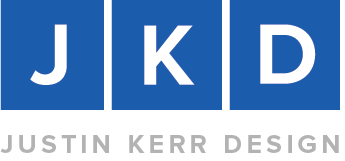I'm not okay, you're not okay
This post is not about branding or design.
It’s about being human, which comes before being a brand strategist, a designer, or even a pirate.
To say that 2020 was a stressful year is an understatement. A global pandemic, social justice issues, and a contentious political election are events that have affected ALL of us. Add to those personal, business, and family stress and you have a recipe for PTSD.
Those who thought that flipping the calendar on Dec 31st would make 2020 a distant memory were rudely reminded on January 6th that there is still evil in the world and no arbitrary date on the calendar will magically eliminate it.
Another notion that has died a slow death is “getting back to normal.” There is no going back to life before 2020. All of us have been irrevocably changed by the events of last year. It’s not the strong that survive, but those that best adapt to inevitable change (just ask the dinosaurs).
Wishing things were the “way they used to be” is one type of denial but another one that’s far more insidious is that we’re okay. I still parrot this phrase when someone asks me how I’m doing. “I’m okay.” “I’m good, how are you?” But I’m not okay. Evidence of this is the vague feeling of dread that I wake up with every morning, snapping at my kids for just being kids, and the fact that I broke into tears (for no obvious reason) while running errands the other day. The slow, pressure-cooker type stress of the past year has revealed cracks in my mental and emotional well-being. I can see those cracks in some of my closest friends, and I’m willing to bet my next stimulus check that you feel the same way.
Coming to the realization that I’m not okay provides some relief but I think further steps need to be taken in order to address the 500 pound gorilla in the room. Here’s a short, unscientific list:
Admit you’re not okay
Saying that you’re “fine” when you’re not produces a cognitive disconnect in your brain that can manifest itself in many ways: a shortened temper, difficulty focusing on work, “numbing out” by over-indulging, and physical fatigue. Admitting you’re not okay is not a sign of weakness, it’s honest.
Step away from the noise
An endless stream of noise is pushed out by news and social media and it can slowly grind you down. I’ve found myself scrolling through Facebook for 20 minutes and not remembering a single thing I saw. I’m not suggesting you run off to the woods and live off-grid but establishing a digital-free or news-free day each week will give your brain a rest. Turning off your phone an hour before you go to sleep and resisting the urge to look at it for the first hour after you get up can do wonders for your daily outlook.
Connect with other human beings
Contact with 90% of the human beings in my life is via the flatland of Zoom. And I’ve come to hate it. Since March 18th of last year, I’ve had exactly three in-person business meetings. I’m an introvert by nature but even introverts need human contact to thrive. While we’re still in the midst of the pandemic, person-to-person contact will be limited but I suggest you do it whenever and wherever you can (with the appropriate precautions, of course).
Focus on your universe
The Serenity Prayer says, “Help me accept the things I can’t change and the courage to change the things I can.” It’s a simple request but a very difficult habit to sustain. I find myself worrying about things that I have absolutely no control over and neglecting things I should be doing something about. I think that may be a result of too much time reading the news and not enough time talking with friends. I don’t have any influence over national politics but I can have a chat with a friend who has a different political perspective than mine. I can’t single handedly put an end to COVID but I can wear a mask when I leave the house. I have a lot of influence in the small universe I travel in daily. And so do you.
Ask the follow-up question
The next time we speak, if I say I’m okay you have my permission to ask the follow-up question, “Really?” This will reveal several things: you admit things are not okay, you care about me as human being, and you read this paragraph.

